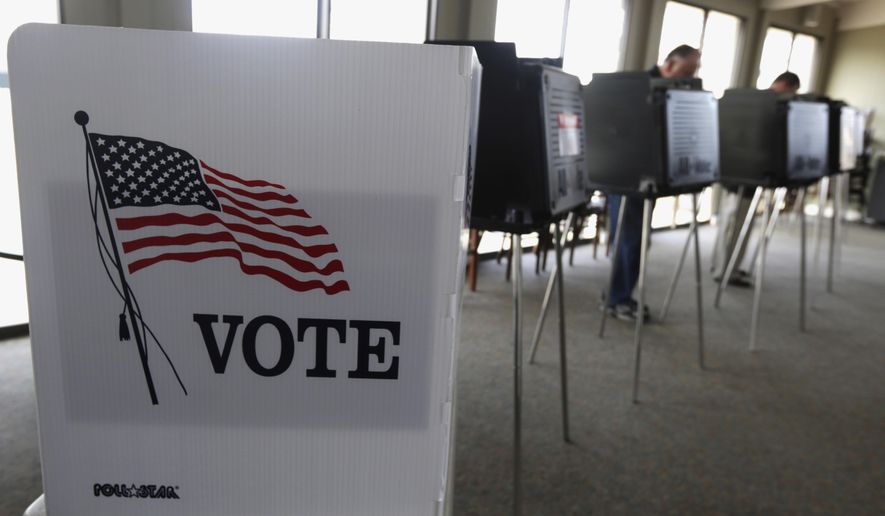Arkansas has already turned over some of its voter data to President Trump’s voter integrity commission, the government’s lawyer told a federal judge, upping the stakes in the battle over whether the panel can collect sensitive information on the country’s voting pool.
Judge Colleen Kollar-Kotelly is trying to decide whether to halt the collection, after the Electronic Privacy Information Center (EPIC) sued, arguing the commission is breaking federal data and privacy laws.
At a hearing, the judge signaled concern about having the information sitting out on a government server that may not be certified to hold such sensitive data about Americans.
“The information’s going to sit there,” she said, wondering whether it was vulnerable to “hackers or whatever else.”
Presidential Advisory Commission on Election Integrity Vice Chairman Kris W. Kobach last week asked all 50 states to provide any publicly available information from voter rolls detailing their voters’ names, addresses, dates of birth, election voting history and perhaps even partial Social Security numbers.
A number of state officials have resisted, but others said they’ll cooperate as far as their laws allow.
Elizabeth Shapiro, the Justice Department lawyer handling the case, confirmed they are free to do so.
“It’s not a demand for information, it’s a request,” she said. The commission “doesn’t have the ability to say ’You must do it.’”
EPIC lawyer Marc Rotenberg told the court Friday that he’s not sure what the commission can actually obtain, saying even those states that allow for some public disclosure of their data have restrictions on who may obtain it or how it can be used.
But Arkansas’ submission suggests that at least one state has found some data it was able to submit to the website specified by the commission — a U.S. Army server.
That turns out to be a critical point in whether federal data privacy laws apply.
The commission argues that since it’s purely advisory, it doesn’t have to abide by the E-Government Act that would have required a full privacy assessment before asking for the data.
The judge, however, said if the information is sitting with the Army, that is a federal agency that must comply.
The Army has, in fact, conducted a privacy impact statement for the server in question, but Judge Kollar-Kotelly said the voter data may be different enough that yet another assessment is called for before the presidential commission accesses the data.
But Ms. Shapiro, the government lawyer, said the Army in this case isn’t looking at or handling the data. She compared the Army’s role to that of a post office that takes possession of a letter when it’s mailed, but which doesn’t have active involvement in the content.
• Stephen Dinan can be reached at sdinan@washingtontimes.com.




Please read our comment policy before commenting.